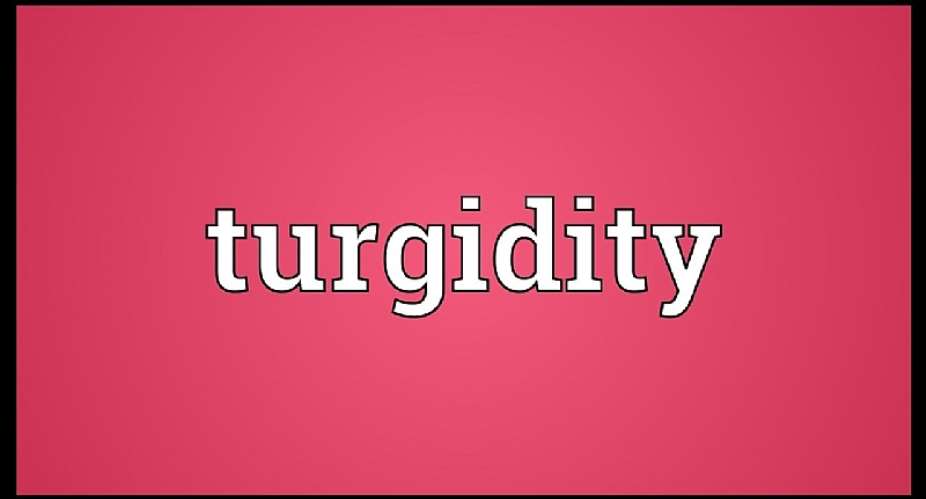The other time, on Success Book Club (SBC), an interesting discussion was stoked. It was, per my understanding, a grudge between the introduction of “new words” and “turgidity”.
Turgidity means a sentence or paragraph loaded with ‘big words’, which thereby make understanding and communication very difficult for an average reader. The below is an example of a turgid sentence: “Don’t use a big word when a singularly unloquacious and diminutive linguistic expression will satisfactorily accomplish the contemporary necessity.”
The thing is, when you start as a young writer, with all the vocabularies at your dispensation, you’re likely to load a paragraph with them, without considering the average reader. If I ever made you felt that way, forgive me. I’ve changed. I’m not going to sin anymore.
That notwithstanding, people read for many reasons; to enrich their vocabulary, strengthen tenses construction, enjoy the storyline and subject matter, derive information, wordplay, pun, etc. Therefore the need does differ among readers and writers, most certainly. And always the targeted audience should be considered in this regard.
Having said that, my boss mentioned this word to me, “Perhaps”, in 2015, while we were having a convo. Though I understood it contextually, I didn’t know the literal meaning. I bet you, I’ve chanced upon “Perhaps” a number of times in my read, in Senior High and Tertiary, but never did I make an attempt to get to know its meaning beyond my normal read. It was that awful day, as irksome as I was, then I learnt to check the meaning of “Perhaps”. Lord! I realized that it’s the same ‘maybe’, and ‘probably’ I know and do use always. Like you’d also say today, ‘prolly’.
Now come to think of it, to my Boss (and, perhaps even you), “perhaps” is a common word but to me then, “my boss is a sesquipedalian; he likes using big words because he’s always reading voluminous books.” You’d wonder if I was thinking right because ‘perhaps’ is a household word but I didn’t know, I swear. This was me, doing my National service, 2014.
What I have realized, in hindsight, is that our unwillingness to understand words literally is always the “problem”. I remember telling a friend that we have all come across thousand and one words, but because of understanding them contextually, we don’t pay attention to the literal meaning, and thus it impedes the urge to enrich our vocabulary. And as such when what appears to be an average word passes by our noses then we fume. Therefore, we are still finding it difficult to know what constitutes Turgidity or big words. Maybe not.
To the writers: our first duty before the people is to ‘simplify, and not to mystify’, as said by Hafiz Laryea. I believe this is a honest way to go.
However, to the reader, don’t feel so dull to open your dictionary when reading. Smart phones have made it easier. Just note a word down and find its meaning just by a click. Whenever I read Chinua Achebe’s book, even with the dozen of words I’ve in my notes, I still could get not more than 50 new words I add to my dictionary for just a book. So You see? We all do search. That’s part of the reading science.
In the last poem I shared: ‘The Jealous Partner’, I had to use this word “preening” due to the structure of the poem. Line (8): “As I put it on, and began preening myself” The word ‘Preen’ means: admiring oneself before a mirror. I could have settled for ‘admire’, but I felt ‘preening’ will do the job perfectly well, if you’re following the context of the preceding lines of the poem before line (8).
So, sometimes certain factors inform the choice of a word, not writers, deliberately wanting to bombard readers with words.





 Galamsey: Five Burkinabes jailed 20 years each for mining
Galamsey: Five Burkinabes jailed 20 years each for mining
 'It's no crime' – Abu Sakara defends Alan's exit from NPP
'It's no crime' – Abu Sakara defends Alan's exit from NPP
 'We know all your houses, pay your bills now or we’ll disconnect you; we're all ...
'We know all your houses, pay your bills now or we’ll disconnect you; we're all ...
 Impacts of air pollution extremely dire – Clean Air Fund
Impacts of air pollution extremely dire – Clean Air Fund
 Lofortoe Chief gives one week ultimatum to Fulani herdsmen to vacate
Lofortoe Chief gives one week ultimatum to Fulani herdsmen to vacate
 2024 elections: A vote for Mahama will turn Ghana's education system upside down...
2024 elections: A vote for Mahama will turn Ghana's education system upside down...
 Dumsor: NPP will be punished in election 2024 if gov't doesn't address current s...
Dumsor: NPP will be punished in election 2024 if gov't doesn't address current s...
 Akufo-Addo directs GRA, Finance Ministry to renegotiate deal with SML
Akufo-Addo directs GRA, Finance Ministry to renegotiate deal with SML
 Kofi Bentil’s love, support for Bawumia will never represent IMANI – Franklin Cu...
Kofi Bentil’s love, support for Bawumia will never represent IMANI – Franklin Cu...
 NPP outperforms NDC in health infrastructure in Ashanti Region — LIPS report
NPP outperforms NDC in health infrastructure in Ashanti Region — LIPS report
